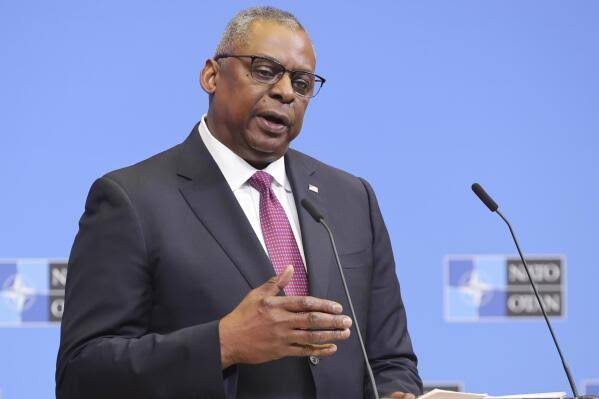
US Defense Secretary Lloyd Austin is being treated for prostate cancer, according to a statement on Tuesday, January 9 from Walter Reed National Military Medical Center.
The statement revealed that the cancer was discovered in early December. He underwent a “minimally invasive surgical procedure” on December 22 called a prostatectomy to treat the cancer.
“He was under general anesthesia during this procedure. Secretary Austin recovered uneventfully from his surgery and returned home the next morning. His prostate cancer was detected early, and his prognosis is excellent,” the statement read.
The Pentagon had been facing intense questions after it was revealed on Friday that he had been admitted to Walter Reed on January 1 and had been hospitalized for days without notifying the public. It was subsequently reported that Biden, senior national security officials and even Deputy Secretary of Defense Kathleen Hicks who had assumed Austin’s duties were not aware of the defense secretary’s hospitalization until three days after he was admitted.
On January 1, Austin was readmitted to the hospital due to complications “including nausea with severe abdominal, hip and leg pain.” He was found to have a urinary tract infection, the statement said.
Asked why Austin did not disclose that he was diagnosed with prostate cancer — Pentagon spokesman Maj. Gen. Pat Ryder said the situation was “deeply personal.”
“[I]t’s prostate cancer and the associated procedures are obviously deeply personal,” Ryder said Tuesday during a news briefing at the Pentagon. “And so, again, you know, we’ll continue to work hard to make sure that we’re being as transparent as possible moving forward, and again, wish the secretary speedy recovery.”
For the last eight days of Austin’s time at Walter Reed in treating the infection, he “never lost consciousness and never underwent general anesthesia.”
Ryder did not say if the secretary’s travel would be affected by his procedure or complications, but said Austin is “actively engaged in his duties” and in regular communication with his staff.
